Plastics in agriculture: impacts, lifecycles & long-term sustainability
The innovation agenda of farmers, industry and policy in Europe & beyond for an enhanced sustainability and healthy soils.
Discover Contact UsThe innovation agenda of farmers, industry and policy in Europe & beyond for an enhanced sustainability and healthy soils.
Discover Contact Us
As the project is leading towards its end in May 2025, this short survey will help us get useful insights on the stakeholder perspectives on the project-delivered knowledge.
Read more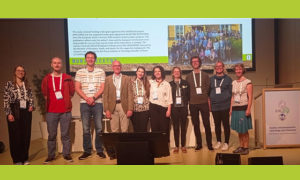
On May 11 to 15, PAPILLONS consortium members participated in the the SETAC Europe 35th Annual Meeting in Vienna. The conference focused on the theme “Innovation for Tomorrow: Progress in Safe and Sustainable Concepts”.
Read more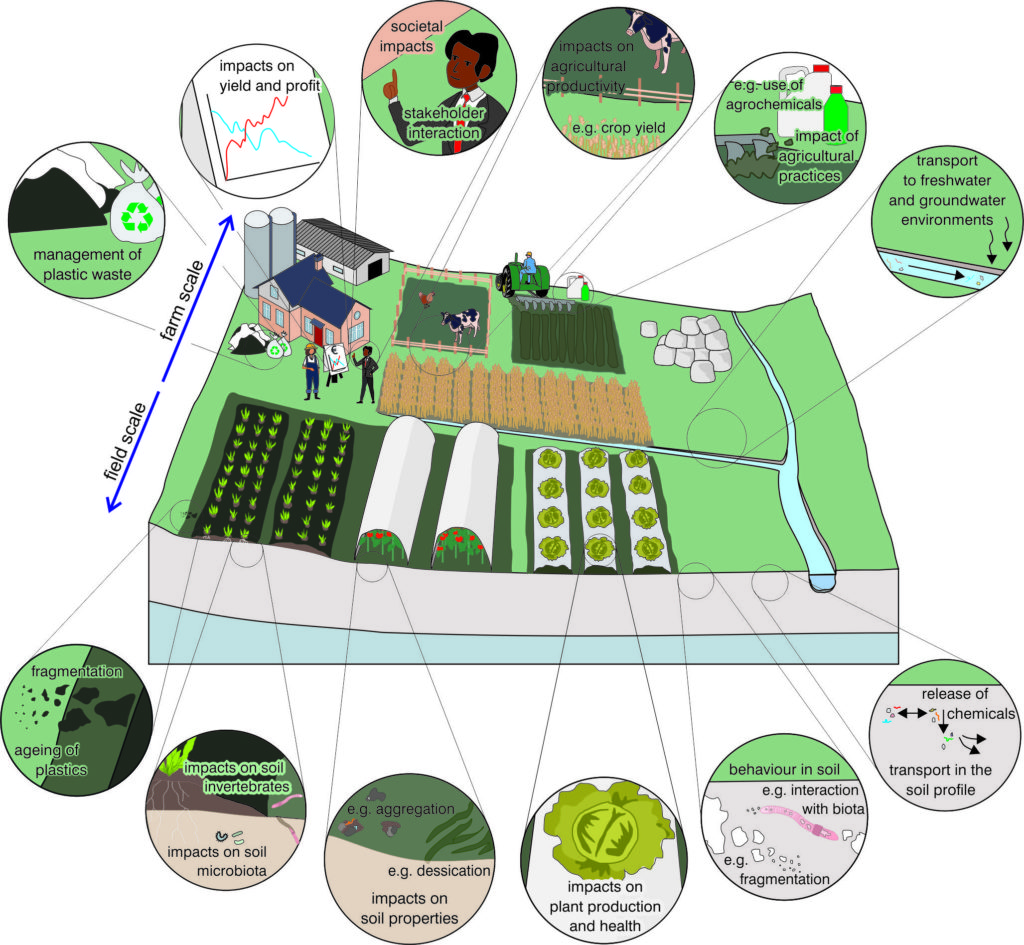
PAPILLONS (entitled ‘Plastic in Agricultural Production: Impacts, Life-cycle and LONg-term Sustainability’) is a research project supported by the European Commission within the EU Horizon 2020 programme.
Our consortium is built of 20 partners from 12 countries, who represent the cutting edge of research into agricultural plastic use and impacts in Europe. We comprise a network of world leading experts, including excellence in agronomy, ecotoxicology, soil, animal and plant ecology, material sciences, social sciences, economics and environmental chemistry.
The long-term impacts of these materials on soil ecosystem quality and functioning, and agricultural sustainability is uncharted. Knowledge and understanding of mechanisms and processes controlling releases, behaviour, fate and impacts of different macro, meso, micro and nanoparticles as well as their chemical additives and transformation products on soil ecosystem and its productivity is mostly missing.
Our goal is to study the sources, behaviour and ecological effects of micro- and nanoplastics in agricultural soils, resulting from the use of agricultural plastics. Our aim is to limit the existing knowledge gaps by our research and to become a “one-stop-shop” of easily digestible information on micro and nano plastics in particular, and on plastic pollution in agricultural soils in general.
In this video, Dr. Rachel Hurley PhD presents the PAPILLONS H2020 research project at the 1st Plastics Europe Microplastics Scientific Workshop at the 12th of May 2022. The goal of the research is to fill in the existing knowledge gaps by studying the sources, behaviour and ecological effects of micro- and nanoplastics in agricultural soils, resulting from the use of agricultural plastics. She highlights the concept behind each WP, as well as the role of the multi-actor approach.
Credit and appreciation for the footage goes to Plastics Europe.
Plastics are becoming increasingly important in European agricultural production. However, many uses of plastics and different farming practices can result in the release of debris with a range of different properties, potential bioactivity, and impacts on soil properties.
The aim of the Knowledge Hub is to create a “one-stop-shop” of easily digestible information on micro and nano plastics in particular, and on plastic pollution in agricultural soils in general.
Should you have an opinion or expertise on the subject and wish to contribute to the development of the Knowledge Hub with your views featured then do not hesitate to contact us!
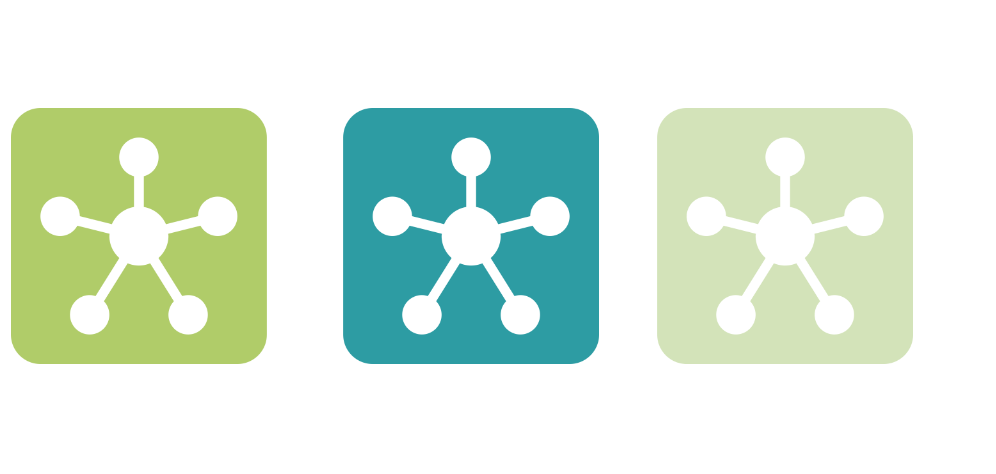
PAPILLONS comprises 19 European partners from 12 countries and 1 Chinese partner. A broad range of biogeographic and agricultural regions in Europe are represented.
Click here to learn more about each partners role within the consortium!
1° NORSK INSTITUTT FOR VANNFORSKNING (NIVA) – NO
2° GEOPONIKO PANEPISTIMION ATHINON (AUA) – EL
3° SUOMEN YMPARISTOKESKUS (SYKE) – FI
4° LUONNONVARAKESKUS (LUKE) -FI
5° FARM EUROPE AISBL (FE) – BE
6° FREIE UNIVERSITAET BERLIN (FUB) – DE
7° MASARYKOVA UNIVERZITA (RECETOX) – CZ
8° FUNDACION IMDEA AGUA (IMDEA) – ES
9° UNIVERSITAT BAYREUTH (UBT) – DE
10° STICHTING VU (VU) – NL
11° CONSIGLIO NAZIONALE DELLE RICERCHE (IPCB_CNR) – IT
12° UNIVERZA V LJUBLJANI (UL) – SI
13° RHEINISCHE FRIEDRICH-WILHELMS-UNIVERSITAT BONN (BONN) -DE
14° UNIVERSITA DEGLI STUDI DI BARI ALDO MORO (UNIBA) – IT
15° INSTYTUT HODOWLI I AKLIMATYZACJI ROSLIN – PANSTWOWY INSTYTUT BADAWCZY (IHAR) – PL
16° UNIVERSITEIT LEIDEN (LEI) – NL
17° UNIVERSITAET KOBLENZ-LANDAU (UKL) -DE
18° NANJING UNIVERSITY (NJU) – CN
19° FORSCHUNGSZENTRUM JULICH GMBH (FZJ) – DE
20° VYSOKA SKOLA CHEMICKO-TECHNOLOGICKA V PRAZE (UCT) – CZ
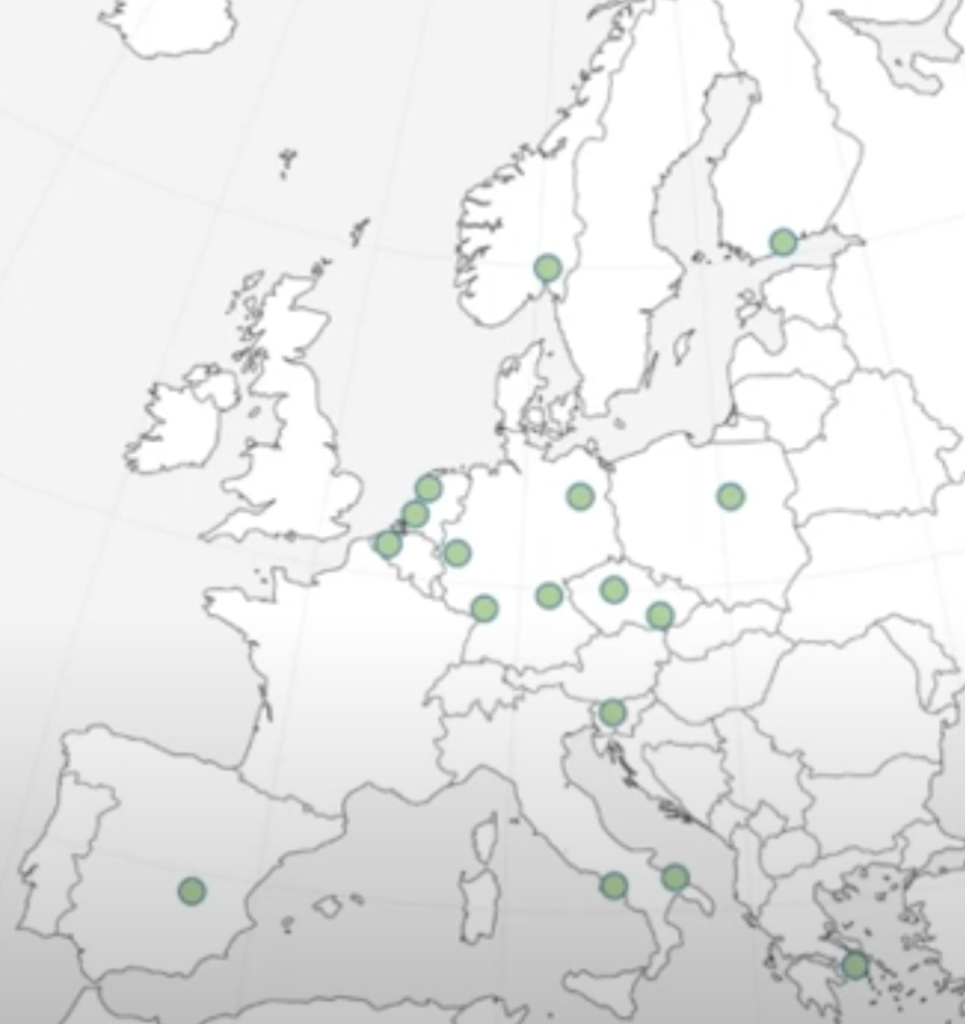
Find here some downloadable dissemination material!
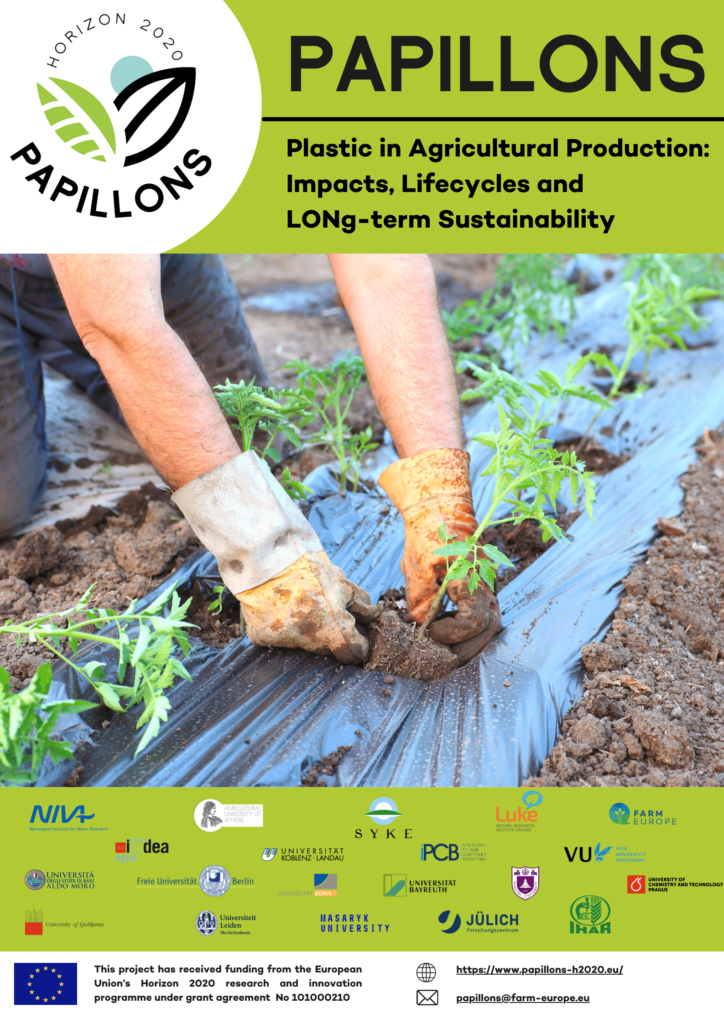
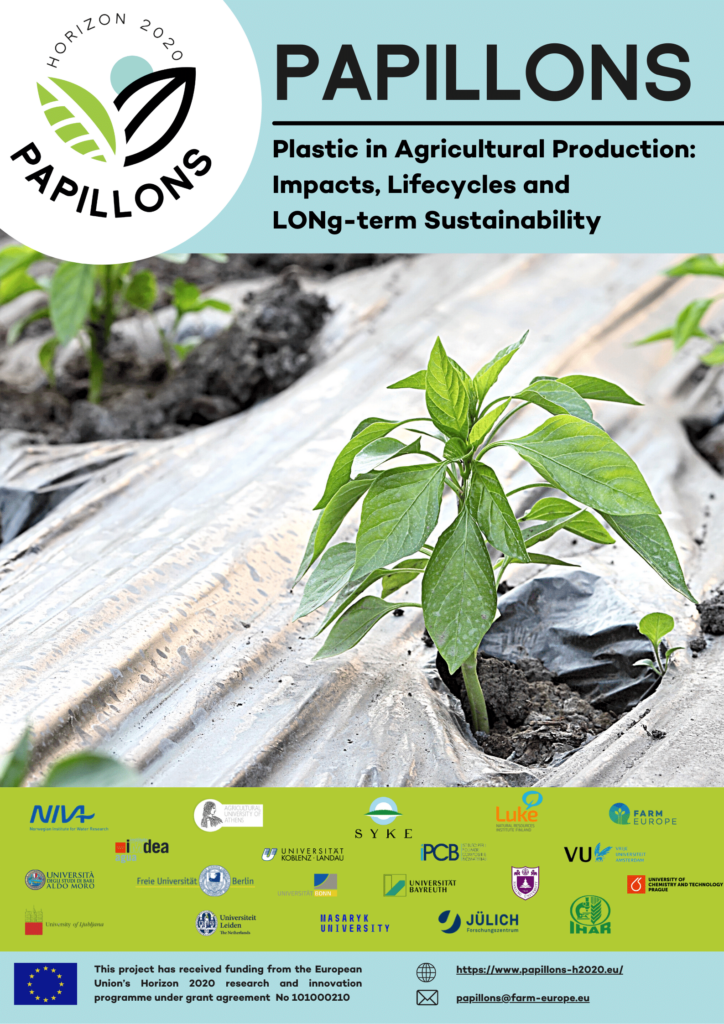
Plastic is a material which is at least partly made of organic polymer and can be moulded into solid, non-soluble, objects.
Conventional plastics are petroleum-based, meaning that they are made from fossil resources such as natural gas, oil or coal.
57 million tonnes of primary plastics were produced in 2016, the share of bio-based plastics being 1% of EU annual plastic consumption.
The accumulation of the plastic debris in agricultural lands rises concerns for soil health.